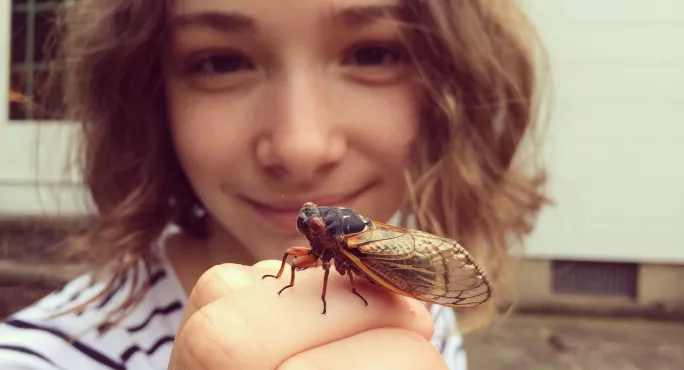As a teacher, I want to inspire the next generation of scientists.
I want to develop curious students, who look at the world around them and question what they see.
But I’d like to know if it’s better to simply tell students what they need to know, or if they’re more likely to learn, and remember what they’ve learned, if I get them to make predictions beforehand.
Quick read: GCSE science: help students master extended responses
Quick listen: Why peer learning is more effective than you think
Want to know more? What students can teach you about technology
And I wonder if they’re equally likely to learn something, whether they’re interested in it or not, as long as it’s taught well.
When I trained as a teacher, I was advised to begin lessons with a “hook” to capture students’ imagination, but it’s increasingly common now to start lessons with some form of retrieval practice.
Reviewing things that were previously learned strengthens students’ long-term memory, and this is important if we want to develop creative scientists, who can apply ideas they have learned to novel situations.
You can’t predict how atoms and ions will behave, for example, if you’re struggling to remember what atoms and ions are in the first place.
But I suspect that curiosity is an important characteristic of the most successful students.
After all, you can memorise the entire curriculum, and learn to apply it beautifully, but if you have no desire to find out why things happen, you’ll never be a true scientist.
Lighting the wick
Described in a recent study as “the wick in the candle of learning”, curiosity acts as a driving force for learners, analogous to how a wick determines the length of time a candle will burn for.
A number of studies have shown that people remember things better if they are curious about them. But as a teacher, I’d like to know whether we can stimulate this curiosity in our students extrinsically, or whether they need to be intrinsically curious, and already keen to find out more.
If curiosity is indeed the wick in the candle of learning, what can teachers do to light it?
Getting students to generate a prediction about something before we tell them about it makes students more curious, and this can help them learn and remember things for longer.
This suggests that we can indeed help make our students more curious, and that it’s relatively straightforward to do so.
A number of previous studies had already demonstrated that, if you get people to guess an answer and then give them feedback, it helps them learn.
But in this study, learners were even more curious about the answer to a question if they’d previously predicted what it might be. And the more curious they were, the better they remembered it afterwards.
Asking our students to generate a prediction before telling them the answer apparently boosts learning, and this kind of approach can be used quickly, repeatedly, and simultaneously, even within a large group.
It seems to trigger an intrinsic desire in our students to find out the correct answer. This is possibly just because you’re more likely to focus your attention on something when you realise you don’t know it, or it might simply be that things feel more relevant once you’ve thought about it and tried to solve something.
What this study showed is that there was a greater desire to find something out once they’d predicted the answer, and this helped them learn.
Engagement first
Having said all that, there are of course some caveats. As with any approach, students do have to engage with it in the first place for it to be effective.
If they don’t actively predict an answer themselves, and just rely on their friend to do it for them, it won’t have the same impact. Also, prior knowledge is important, and it’s important to remember that we can’t just expect students to come up with ideas without a firm foundation to build on.
But this study does help to reinforce my hunch that curious students are likely to be more successful, and that it’s worth framing ideas as questions at least some of the time.
Personally, I shall keep striving to develop students who question what they see and hear around them, and who are motivated to find out more.
Dr Niki Kaiser is network research lead at the Norwich Research School at Notre Dame High School





